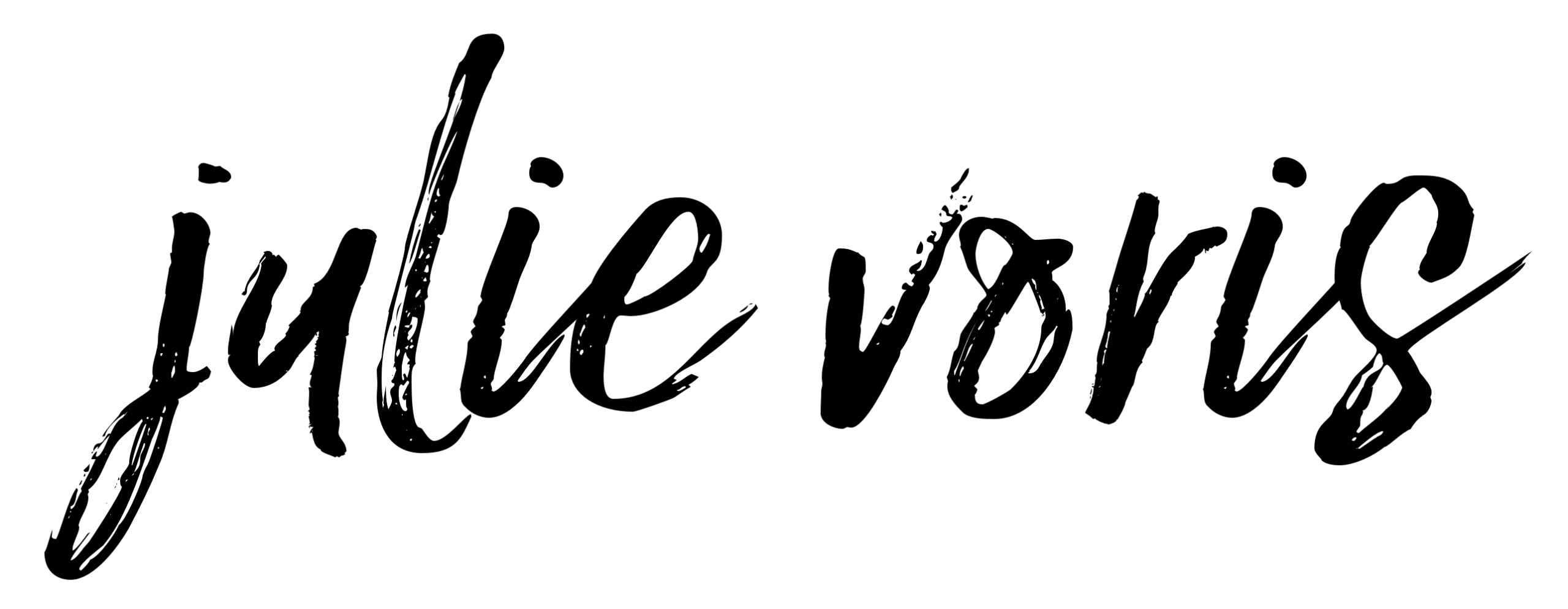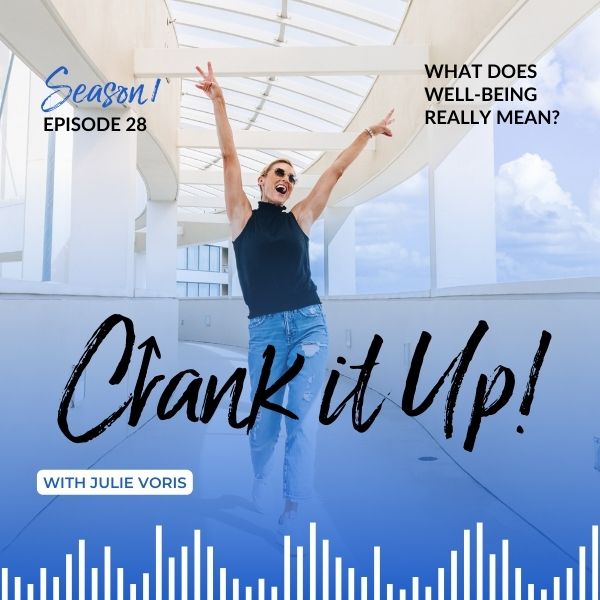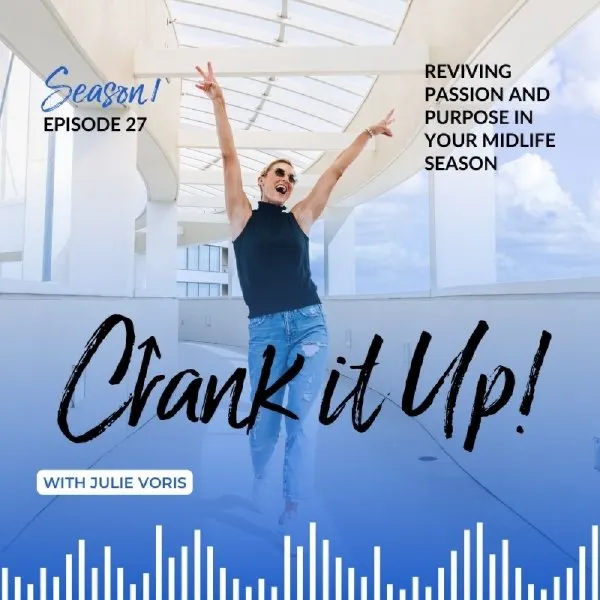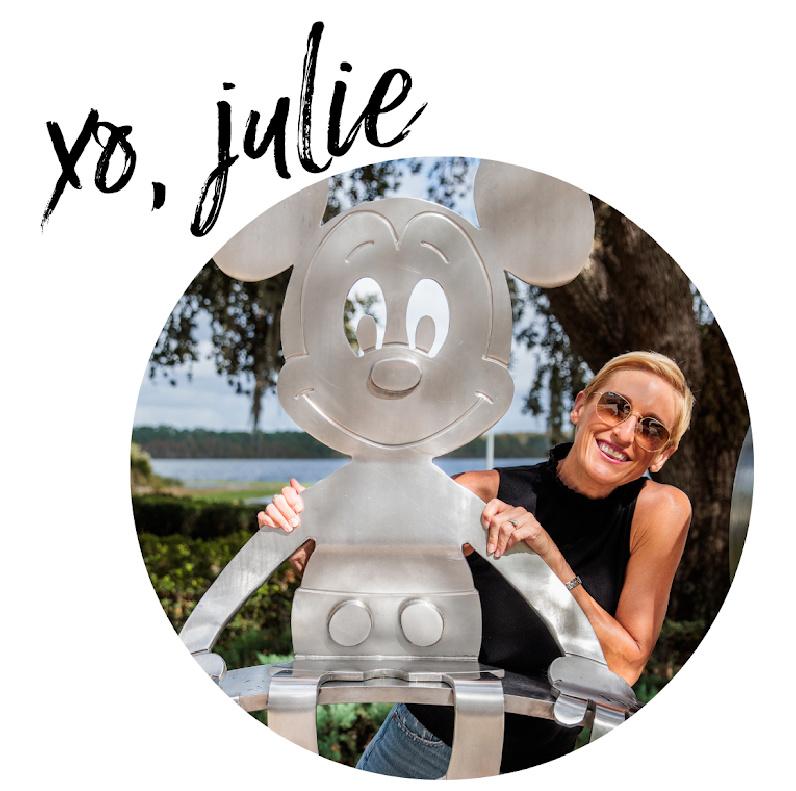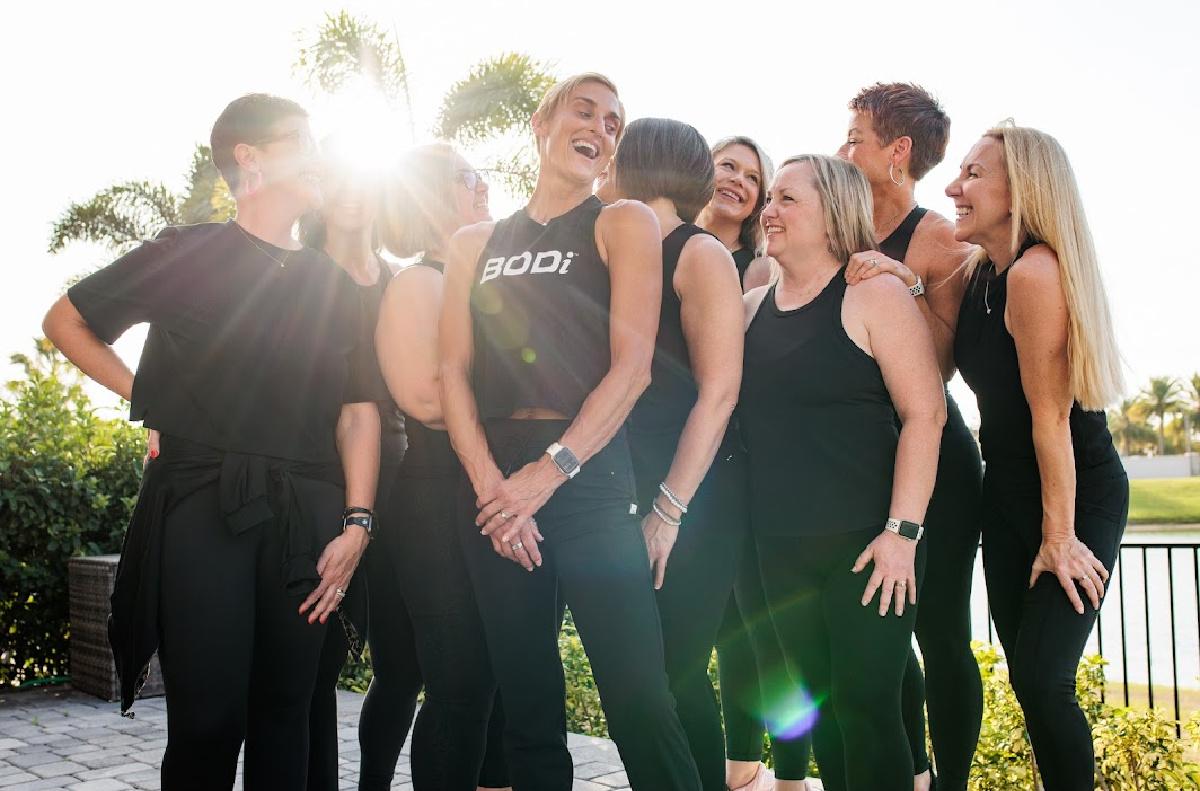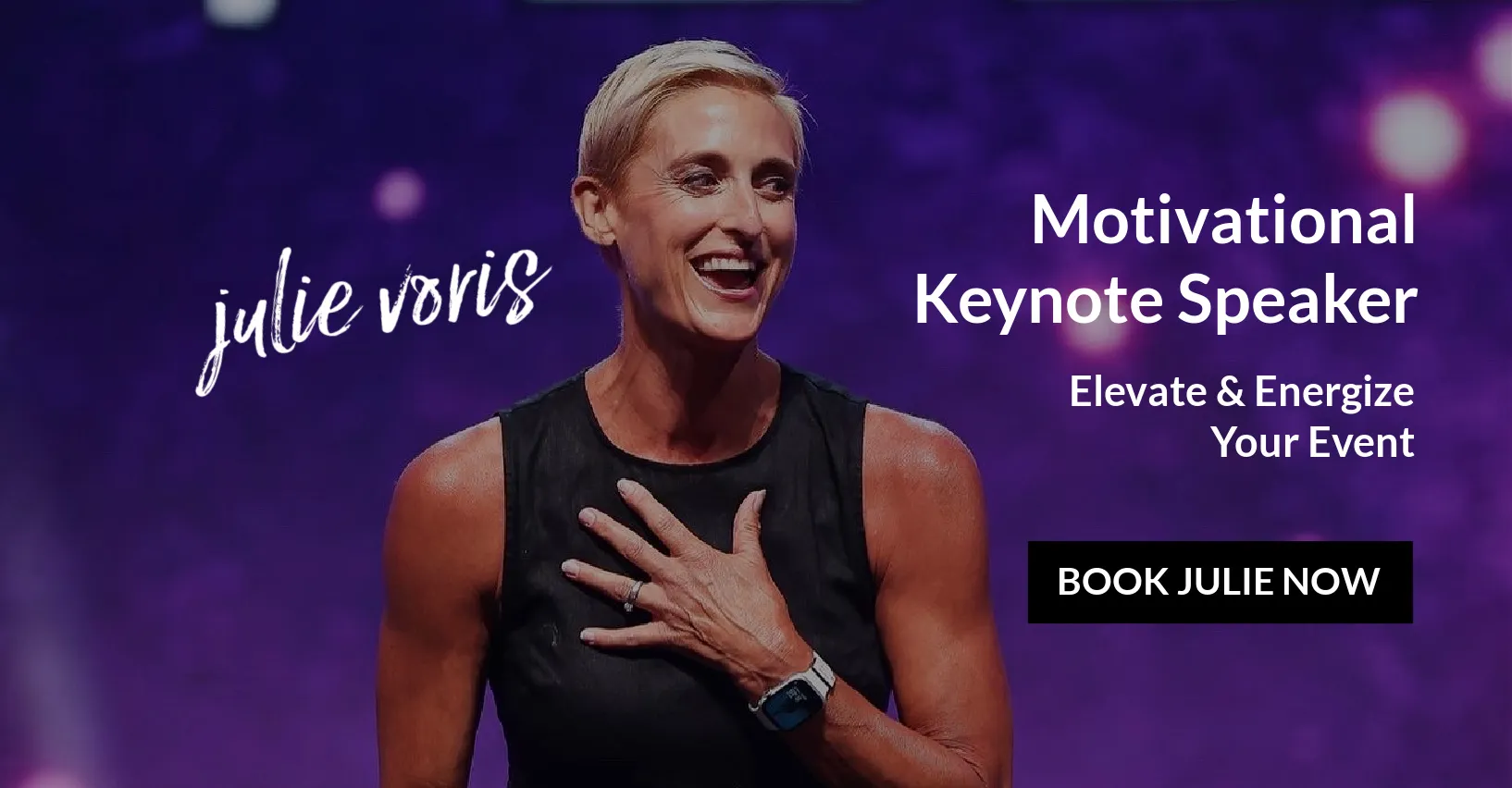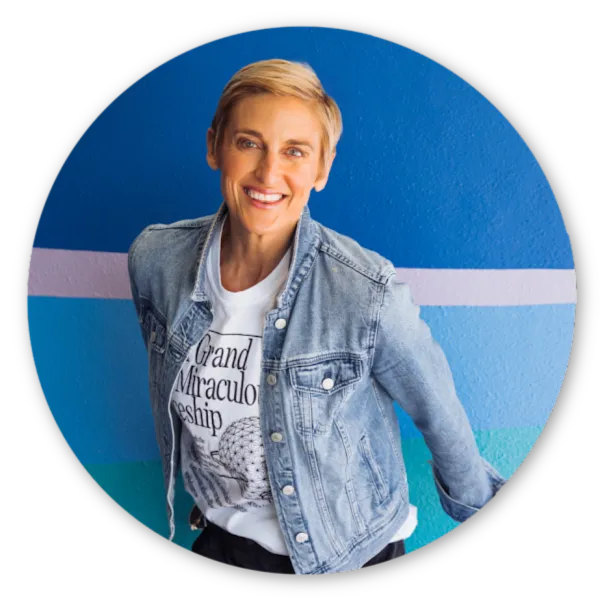Welcome back to Crank It Up podcast, and welcome back to number 3 in our series of these three keys, specifically in midlife, yes, but really in life.
We’ve talked about this idea of having purpose, what that looks like, what that feels like, what it could look like. We’ve talked about the idea of well-being. What is well-being? What does wellness even mean? What does it look like? And today, we’re tackling the subject of community. Now what I want you to know about all three of these is that these are personal definitions.
Connection, Community, and Growth
So the conversations that Jenny and I have been having are really from our lived experience, yes, and from our own thoughts and opinions.
This is kind of what we’ve lived and kind of what we’ve experienced and kind of what we learned, and we’re just sharing these ideas with you to start the conversation with yourself.
- What does purpose mean to you right now in this season of your life?
- What does it mean to be well, holy well and to focus on well-being right now in this season of your life?
- And what does community mean to you? What does it feel like? What does it look like right now in this season of your life?
And if you don’t have any of these three pieces, can you start the conversation with yourself to pursue those paths? Because from what we know, we are more whole, healthy, and happy humans when we do have purpose, when we are taking care of ourselves, and when we have a community of like minded people around us.
So this is the 3rd in a series of 3 episodes. Now if you haven’t listened to the other 2, no worries. Go back and listen to them at any point in time, but they do all sort of fit together like pieces of a puzzle.
Today, we’re talking about that 3rd piece, and that is community. We’ve talked about purpose. We’ve talked about well-being, and these are all three pieces that while specifically have to do with midlife and empty nesting, actually have to do with life and life in general.
And having purpose in your life, which becomes a little harder sometimes in that midlife empty nesting season of life, trying to kind of figure out what that is.
Well-being actually becomes more important in midlife and empty nesting as you get older.
We are here talking about community and all the things, and I know you’ve got some questions, and that is a word we hear bandied about all the time. Come be part of our community. Come create community. Let’s do community. And we hear that word all the time. So we know that it’s important.
We know that it can be tricky. So let’s talk about what it is and why it’s important and how it looks and all the things.
Reevaluating Friendships As We Age And Finding Community
Jenny [00:03:31]:
Yes. And, like, you and I have talked a lot about Julie before in the past. The community is very different, in different seasons of life, but it’s so valuable. And I think that you often hear grown ups say that, oh my gosh. I didn’t realize how hard it would be to make friends as a grown up.
And and so, like, we think of our friend group as, like that’s, like, our first, I mean, our first community truly is our family. Right? And then beyond that, it’s your friends. And who are your friends? They’re the friends you may meet in class. They’re, like, the default because you’re just doing life with people.
But as you get older and life looks a little bit differently, I think community and finding the right community can get kinda tricky. So I think when we talk about community, one of the important things we wanna keep in mind is, like, what is it that I’m actually looking for?
You talk about community. Am I looking for a friendship, someone that I actually wanna, like, go hang out with and go for a walk and go kayaking and learn the intricacies of their life?
Or am I looking for a place that’s fun to show up to on a Saturday because I have nothing going on? We have something in common, and we don’t necessarily need to have super deep relationships with these people, but it’s an environment that I enjoy being in.
Or is it, like, a learning community? These are around people that are gonna help me grow, support me. Like, there’s so many layers to it. And so I think that’s something that is really tricky as we’re, like, feeling this sense of, okay, people tell me I need community.
What is it that I really need from that community? And 2, what is it that I really want?
Julie [00:05:13]:
Especially as, to your point, when you get older because, you know, you get thrown into a classroom when you’re in elementary school, and here’s your friends.
And I don’t know how many people are like this, but my husband has people in his life that he has been friends with since elementary school. I think that’s rare and actually pretty cool.
They get thrown into this classroom, and you have these people that, okay. Now these are my friends. And then the same thing happens, you know, as you traverse middle school and high school, and maybe you’re on sports teams or you’re in arts or whatever.
And because there’s common interest, these people become your friends. And the grown ups behind those kids may become friends by default. You know?
Like, these are the circles that you’re running in. So, you know, my kids are in marching band. I’m spending a lot of time with marching band people, so now they’re kind of my friends, and it becomes this community by default.
It’s when your children are a little bit older and now those friendships have sort of, you know, ended their season, kind of had their shelf life or whatever, and your community or your friendships are sort of on you now to find, to seek out, to make that it it’s so interesting because it’s tricky and it can be hard, and it also can be really cool to think, oh, wow, I actually get to choose now.
You know? But to your point, what the heck does it look like? And the pandemic, I think, really helped us redefine that, and we learned that communities can be virtual too.
That they don’t have to just be in real life. And I think for me too, you know, I learned communities that were in real life that I thought were actually communities weren’t communities as much. And so that was also, you know, kind of a learning piece, but that’s a good life lesson to know.
Julie [00:07:04]:
And you start to really look at the people that are in your life, and are they true friendships? What do you want out of those true friendships? You know, don’t let yourself be bamboozled by the thought that you have to have, you know, this core group of 10 people that you’re doing all the things with. And, you know, you and I always joke, like, in having sleepovers of braiding hair.
I’d rather poke a pencil in my eyeball. But, you know, maybe for someone in the community, it looks like 1 or 2 really good friends. And maybe for someone else, it looks like to your point, you getting together on Saturday?
I just wanna show let’s just let’s, you know, let’s play some games and have a great time and watch some TV or movie or whatever. So there’s so many ways a community can manifest in our life.
I think to start this conversation, we have to acknowledge that first. That it can look a lot of different ways, and none of those ways are wrong. All of those ways are right.
Actively Seek Diverse Connections To Support Personal Growth
Jenny [00:08:00]:
Exactly. Well and I think too one of the things that we wanna touch on too is when we’re seeking communities. Like, I could say that I have a couple really close intimate friends that even though we might not talk every single day, they’re those people that I need to go to.
Like, if I just, you know, not a therapist, but, like, that built-in friend group therapist where you’re just, like, I have fun with you. You give me events. We’re authentic. We’re vulnerable.
The Pivotal Role of Diverse Friendships in Personal Growth:
“Like, and we can and we accept each other in that moment. But those are not necessarily the friends I would go to if I have business goals or I’m chasing a dream… If I want to grow in my coaching career, if I want to grow in my business, if I want to learn about gardening, whatever passion it is, I’m gonna need to go seek those because sometimes the people right in our immediacy, is that a word, our really small circle, although they are our, like, intimate community, they’re not everything that we might need, especially as we continue to grow and uncover other passions and do other things.
And I think and you’ve referenced this a lot. Like, Michelle Obama wrote in her book where, like, no one person was meant to be our whole person. That’s our husband. That’s our best friend. That’s our mom.
Julie [00:09:22]:
I love that so much.
Jenny [00:09:23]:
Whomever. And so that’s another just testament. Like, we need different people speaking in our lives for lots of different reasons, and so it is identifying what is the need for community in my life.
If I’ve got a bestie, great. It doesn’t mean I’m going to look for another bestie. I don’t need to go on blind friendship blind dates and figure that out.
However, if I have goals or something I’m chasing, I do probably need to seek out community, whether that’s, like, a mentor or it’s just maybe starts with a little online group situation just to be around hearing other women talking about similar things, you know, and stuff can come from there as well.
Julie [00:09:56]:
Well, I think to your point, you know, that not one person can be all your things. There’s such comfort sometimes in having those long time friendships where you don’t have to give them all the context. Right?
Like, they already know all the things, and you, you know, see you go into them and you say 1 or 2 sentences, and they’re like, yep. Yep. I got you because they know all the context.
And quite frankly, it’s exhausting to think about starting all over with someone else and trying to give them all context. Like, that I don’t have time. I don’t even have time with my own husband sometimes to give him the context.
I just don’t have time for the context. So when you have those friends who know all of that about you, that’s super comfortable.
And to your point, they may not be the person who has business experience or has built a business or has a desire to build a business or whatever the goal might be.
And so you’ve got to seek out those masterminds, which can be a community, a mentor, a business coach, which can be a form of community. Just other people having that same conversation so that you have some common language.
Jenny [00:11:03]:
Yeah. And I just to touch on that real quick, and then we can go forward, but you and I both moved before to places where we knew not a soul. And, yes, we ‘d like to say, hey, I do have children, so that’s help you know, helpful in that moment.
Oh, we’re all going to kindergarten, check-in together, and that kind of stuff. And so some of that stuff organically happens, but it is so exhausting when you’re like, hi. I’m new. You’ve never met me, and you know nothing about me.
And I do remember breaking down one time, the first time we had a big move with my husband. I’m a super extroverted person. I love people. I get energized by people.
And I remember breaking down, we’ve lived there for a couple months, and I’m just like, I’m just so tired of no one knowing anything. Like it was exhausting to be, like, well and giving all that context.
So, like, to your point, it is so refreshing when we have those people in our lives that we don’t have to have that context, and they just know us, and they know our vulnerabilities, and our highs and lows, and continue to show up.
So thank you to those of our friends that are like that, and I hope I hope that I am that friend as well too.
Julie [00:12:05]:
And you probably don’t have very many of those, and that’s okay. So please don’t think that you need to have a King Arthur round table of 20 people that know all the bits and pieces of your life. If you do, that might be something to see happen as well. That feels like a lot of people know. Like, a lot of people.
You have a couple people that know that. I think that that’s, like, a piece of your community. And maybe it’s helpful to think of community like we think of you know, I like, I think of this journey in midlife, this journey of empty nesting as really this puzzle.
Seeking environments that promote growth, intelligence, and reciprocity
And a community may have lots of pieces to the puzzle, and it’s not just one person or one look or one group, but it’s okay.
My life is this big circle, and let me find people and groups and masterminds and situations and events that kind of fit into this circle that help me be my best self and that I can also give back to because it’s kind of a two way street.
We’ve all been part of friendships, relationships, and communities where reciprocity is not happening.
That that’s a red flag for you to start to extricate yourself from that and and find something else because I think that’s one of the most beautiful parts of a good community is the give and the take, the charge, the recharge that’s happening back or the flow of energy that’s happening back and forth so that when you’re done I think it’s, my friend Erin King who says, you know, every encounter leaves you either exhausted or energized.
And so if you can kinda use that as a barometer with your communities, if you are around a community that’s leaving you exhausted just because it’s catty, it’s draining, it’s gossipy, whatever, that’s the community it’s time to extricate yourself with.
And now you need to find a new piece to kind of fit into your puzzle, and that’s okay because that’s kind of part of your life’s journey.
Jenny [00:13:59]:
Yeah. Well and I think too is that sometimes say say we wanna get into gardening, and, we feel good. Say we wanna get into gardening, and we could, you know, go to our local chapter or whatever, and we go there, and maybe that community experience isn’t good because people are weird. Let’s be honest.
People can be really weird. And so maybe the people’s connection wasn’t great in that community. Doesn’t mean we have to give up on our pursuit of wanting to learn or pursue this passion.
Virtual Communities Offer Alternative Connections To Expand Our Horizons
When physical communities fall short, virtual spaces offer boundless opportunities for connection. They help us continue pursuing our passions with global networks.
Like and I think that’s what we were talking about too, like, where the pandemic opened up that because of social media, because of the Internet, there are tons and tons of virtual communities that you can get a part of that sometimes you just gotta go, like, at what is, oh, gosh.
What’s the phrase where you go, like, on the you go with the speed dating? It’s not like speed dating, but sometimes it’s gonna take, it might take a minute.
It might take a minute, and to not allow the room that you’re stepping into to determine whether or not you necessarily wanna especially if it’s passion related Yeah.
Whether or not you wanna continue to pursue that passion. Because you could step into a community where the vibe is just not great as a whole, but then you find those 1 or 2 people. And you’re like, but you’re my people.
We can create our own community, and we’re, you know, whole and so I guess, like okay. So if we’re thinking outside of, like, the intimacy friendship. Right? Yeah. Let’s think outside the intimate friendship of the community.
If you were looking for a community that would help you in other aspects of your life, like, say, was, you know, business development or leadership growth or just pursuing passions of any kind… What kind of attributes would you be looking for?
Criteria for Meaningful Communities
Seeking environments that promote growth, intelligence, and reciprocity
Julie [00:15:47]:
Certainly a common language. And it’s interesting because when you think about the different spokes of your wheel that you have just going on in your life, you know, who I’m looking forward to talk to about business, to talk to you about life goals, to talk about that kind of stuff could be very different than the person that I wanna go see, go to the theater with.
And they’re both smart. They’re both articulate. They just sort of have 2 different languages. And, you know, we are we are, air quotes, fluent in lots of different languages and have lots of different interests.
We’re multifaceted human beings, and so we’re looking for people, places, things, events, relationships that we can tap into all those different languages.
So, I mean, that’s the perfect example that, like, the people that I might talk to about my business and what’s going on in my specific business, I’m kind of looking for those kind of people, but maybe in the theater space or the arts space or in the fitness and wellness, maybe live event type space or, volunteerism space. You know?
So where are these other spaces that I have passions? Now I’m looking for those. So for me, there has to be a level of intelligence, shall we say?
You know, as in I mean, I’m not the smartest tool in the shed, but as in I want to be I want to be smarter, I think is what I’m talking about when I’m talking about intelligence.
Like, I want to be smarter. I want to have a more, a wider perspective. I want to embrace lots of viewpoints and opinions, and that’s important to me.
So that would be important to any community that I might be in regardless of what the focus of that particular community was.
Jenny [00:17:32]:
Yeah. It’s like smart conversation. Like, you wanna be able to have a smart conversation. And, like, I think of that too that sometimes you talked about reciprocity.
I want to be in a community where I’m not the smartest person in the room. However, I also wanna know I can contribute to the conversation. Right. You know, I don’t wanna be the dullest tool in the shed.
Julie [00:17:54]:
And then you’re expected to contribute. Right. There’s an expectation that everyone contributes and everyone matters in this particular community, whatever it might be, and that that’s important.
I would think of that when I would teach group fitness and especially when I taught group fitness virtually, you know, during the pandemic. I could show up and, like, be as off the chart energetic as I could, just look as dorky as I possibly could.
And at the same time, I really, really thrived off everybody else showing up with all of their energy too, however that looked. Even through the screen, I could feel that reciprocity.
And I really tried to set that expectation, like, listen. If you’re coming to my class, I need you to kinda be all in here. However that looks for you today however that looks for you today, I just need you to be all in because I’m over here in my basement, like, by myself just giving it to you.
You’re making sure to give me some energy. Because when people do that, when you willingly show up and kinda do that with each other okay.
Here’s another great example that’s very timely. Brian Koslig at the Oscars. I really think he showed up to that performance and was like, I’m gonna give you all I got. I’m going fully all in with this.
And that community of actors and people in the industry said, we’re on this journey with you.
And I don’t think that performance would have worked had it not been full on both ways. That reciprocity is what made that performance so like, the moment of the entire evening. That reciprocity is that energy.
And I think that’s what Erin King’s talking about when she says the interactions either leave you exhausted or energized.
When you are going back and forth, you leave the interaction, you leave the event, you leave whatever wherever you are, and you’re like, that was awesome, and you feel better than when you went into it.
Jenny [00:19:52]:
Yeah. And it reminds me of a time probably, like, 10, 12 years ago, I read a book. And in the specific part of the book, it was talking about relationships.
And I just remember this really key line, like I think it was talking about boyfriend girlfriend relationships, but it really goes across the board.
But it was talking about, like, you wanna be with a person that helps you become a better version of yourself. Yeah. So if you think of your friend group or the other like, show me your friends. I’ll show you your future.
You know, that thing that we tell the kids. And, because it’s true. It’s like, is this community is this person helping you, you know, uncover, be the type of person you wanna be, be talking about the things that you wanna be talking about, or is it something that’s bringing you down or unleashing more of a darker sense, you know, or gossipy or kinda gross, you know, kinda thing.
And so, like, I’ve always just kinda had that as an indicator too. Like, can I show up whether it’s big on community or small intimate friendship, you know, new friendships. Can I show up authentically? Yeah. Can I show up vulnerable if necessary?
Will you accept that? And is this reciprocity going to help me also become a better version of myself? And, hopefully, I’m helping you as well. Like, it’s just that kind of continued growth.
And so I think especially as, you know, when we’re in midlife and we are typically at this season where we’re kinda looking at the well, now what? What’s next?
We’re trying to unpack what’s next because, like you said, so much of life has been programmed for us up to this point.
And so as we’re trying to uncover the what next, like, is this something that brings me joy?
- Am I energized?
- Do I feel excited?
- Do I feel that little tingle in my heart again?
- Do I feel okay?
This is growth, and I’m becoming a better person or experiencing new positive things that I might not have done before. And I think that’s really important. And and definitely not allowing yourselves in that, well, I feel like these are the communities I should be in because someone told me I should be.
I mean, I can tell when I walk in a room sometimes that there’s a whole bunch of moms and there are the whole bunch of moms. I can instantly tell by presence who I’m first gonna walk over and say hi to.
Because there’s just a certain level where I’m like, no. I can tell what you value right now, and you and I may or may not be aligned in that. But by default right now, I’m gonna maybe not dive right in.
Julie [00:22:33]:
Yeah. Yeah. Jesse calls up. My daughter calls up. We can be friendly. We don’t have to be friends.
Jenny [00:22:39]:
Yes. Yes. And I know that
Julie [00:22:41]:
That’s such a great mantra. We can be friendly. We don’t have to be friends.
Jenny [00:22:44]:
And I tell my sports teams the exact same thing. I said rule number 2 on this team is you have to be a great teammate. I said, a great teammate does not mean you have to be best friends.
It means when we’re here in this environment, these are the characteristics, and what we do to lift each other up and be better does not mean you have to go home and braid each other’s hair and tell them every inch. Yes. Exactly. Like, it can be different. It can be absolutely different.
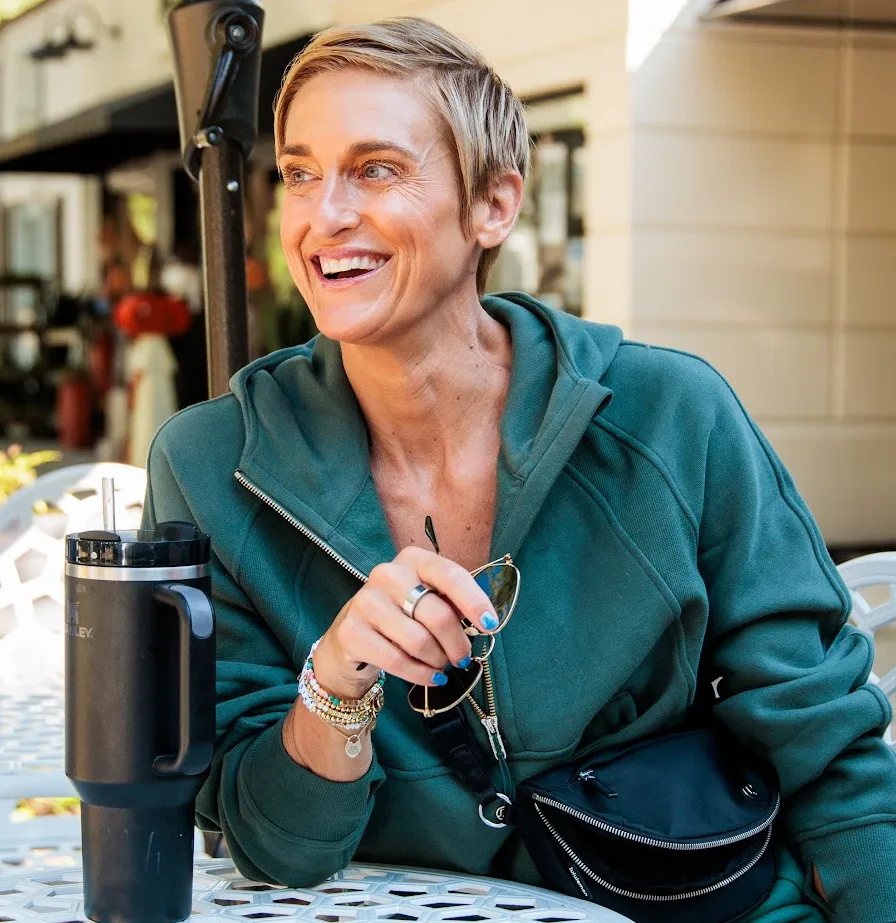
Are you ready to feel calm, confident and energized for your life?
With this total BODi solution, you’ll have everything you need to develop the healthy habits that can ultimately transform your life!
Jenny [00:24:20]:
Well, what do you think, Julie, if you’ve looked back, like so let’s talk about the here and now. What types of communities within the last, let’s just say, 4 years, let’s use the pandemic as, like, our dividing line, in the last 4 years, have been ones that… and you don’t have to get specific, but, like, moments where you’re like, yes, this is where I’m supposed to be. Thank you. So glad I’m here. And then maybe there’s others where you’re like, no. I need it. It’s time to cut this out.
Strategies for Finding the Right Community
Julie [00:24:47]:
I will say that the past 4 years have certainly been growing years for me and for the community. Because I think up until 2020, up until the world really shut down, so much of my community was by default. They were my girl’s friends. It was just places that I happen to live in real life.
And then when that option goes away, it does make you take a harder look at who then you’re spending your time with and also who you thought were friends, were within your community who turned out to not be so much friends. Because they were, like, communities of convenience or friendships of convenience.
So when that happens and you start to experience that, I think it for me at least, I can only speak from my lived experience, it certainly made me wary then of stepping into new communities or of looking for their friendships because that was not a good experience to to lose some of those communities.
However, being on this side of it now and just going through harder stuff and then, you know, going to therapy and just digging out all the layers and extricating that kind of some of those beliefs and stories and things like that that you’re working on, it does put me in a position now where I get to choose communities that I want to be a part of.
And I think the more personal development work you do, the more you accept and acknowledge your own value. So, actually, my energy, your energy, everyone’s listen who might be listening, your energy is valuable too.
I think that as you do your personal development work and as you work on your own limiting beliefs and your own stories, you acknowledge and embrace your own worth and value. So when you acknowledge and embrace your own worth and value, you are much more selective.
You have greater discernment in where you want to put your energy into communities because you do want that to be reciprocal. So I feel like now at this stage in my life, maybe I have, I don’t know, air quotes, less communities I’m a part of or less friends. Some of that is just simply less stuff happening in real life.
We’ve moved and we’re in a new town. But also some of it is, I’m just pickier now as to who and where I will spend my time and energy, whether that’s business groups, whether it’s friend groups, whether…
Valuing Personal Connections:
“I’m just pickier now as to who and where I will spend my time and energy, whether that’s business groups, whether it’s friend groups, whether I’m just pickier now because I really value my energy. I value my knowledge. I value my experiences. I value the time that I have on the planet, and I wanna be hanging around with other humans who value that too, and then we have this really beautiful reciprocal relationship that makes me choosier.”
So then when I think about that, I think about, okay, where do I wanna spend my time? Well, I wanna spend my time with women in my business that have goals and dreams and then we’re really challenging and inspiring each other.
I can tell pretty quickly if those conversations are gonna happen. And if not, and then I probably don’t need to be in that group, that community, whether it’s virtual, whatever.
I have the great good fortune of being in a message thread right now with 4 other women that is giving me life, giving me life. It is one of the most valuable messages I’ve ever been in.
And then I start to think about, okay. What about stuff outside business? What about other passions? And I think, oh, I love the theater. I love the arts. I love that. Okay. Well, guess what? There’s a whole host of other people in my community.
And by that, I mean, like, the Orlando area who love that too. If I start doing some volunteer work, showing up, putting myself in those spaces, I’m gonna find other people like that.
So if you are looking for community, if you’re looking for other people who speak the same language, who have some commonalities in terms of passion,
What do you like to do? Is it gardening, like Jenny said? Is it theater, like me? Is it sports? Is it and then can you start volunteering at some of those places?
Can you start putting yourself in those spaces? Because what I know is when I walk into the Dr. Phillips Center in Downtown Orlando to see musical theater or the ballet or whatever, I literally feel like I’m at home. I’m like, these are my people. Okay. So now I need to meet more of them.
So where do you go that you have that feeling? Where are you when you’re like, these are my people?
Now I need to meet more of them. And chances are because of where you are in life, again, we’re out of that little default community, that default relationship. You’re gonna have to put some work into seeking that out. You’re gonna have to figure that out a little bit.
Choose relationships, take responsibility, seek fulfillment.
Jenny [00:30:01]:
Yeah. And I just wrote that down. I said putting yourself out there. That is a little bit like the kid walking into the lunchroom with the tray and you don’t have any friends yet.
And you’re not sure where to sit, like but we’ve now gone through a whole life. Right? We’re now grown up human beings, like you say, and we’ve done a lot of hard things in our lives, like figure out how to parent children and navigate all sorts of crazy things.
We sure as heck can figure out how to put ourselves out there a little bit and go try something new and see how it feels and see and feel that energy. So it’s just reaching down, being a little brave.
Find a little courage. 3, 2, 3, 2, 1, do the thing. But you have to, you have to be intentional about it. And I think the other thing is sometimes those communities have a ticket price, and sometimes we’re so afraid to spend that $25 ticket to go to this women’s luncheon thing that we know nothing about.
1, because we’re nervous because we know nobody, and where are we gonna sit? Well, you’re a big girl. It out. Go smile and say hi to somebody.
And 2, like, we’re like, oh, but then we justify, like, the money. Yeah. Like, well, I could say that we need that money for something else, but it’s like sometimes, just like a theater, the ticket gets you in the door.
And if you know that’s a place that you wanna be or think there’s even a chance that that place could help level you up, because at least it’s gonna get you around people that are having the same types of conversations that you want to be having, or they’re pursuing some sort of similar type goal.
Again, they don’t have to be your best friends, but just not being afraid to make that investment. Yeah. Especially if it means you have the opportunity to grow and make the changes that are really hard to do on our own.
Julie [00:31:40]:
Yes. And I think when you just start filling your life with some of that stuff, you start getting out there. You start doing some things and meeting some new people. Not the whole population of your state, you meet a few new people.
You do a few new things. That starts to take up some space in your brain, but it’s positive stuff. So we’ve talked about the energy vacuum before, and sometimes there’s sometimes there’s too much space in your brain. And that’s when not so great stuff comes out and has a dance party in your brain.
But if you start going out and you make a couple little relationships here and you come home, you’re thinking about it, and then you go and do this little activity over here and you come and you’re thinking about it.
And then you’re thinking, well, what? Wonder what else I might have done to volunteer. I could go here. Can I go learn how to play pickleball? Could I take some tennis lessons?
Now all of a sudden, there’s less space in your brain for the not so great stuff to come out and play because you are intentionally filling it with other activities, other humans, other relationships, other stuff to think about and you’re creating some some good content in your brain, and you’re starting to find those communities.
You know, John Deloney, I just finished his book, Own Your Stories, Change Your Future, and he talks about we’re just, as humans, not meant to do life on our own. We really are hardwired to have relationships and people in our lives.
The cool part about being a human though is you get to decide what that looks like in your life. What you don’t get to do is complain about not having friends if you’re not going to do anything about it.
So, I mean, you can complain, but I’m just gonna tell you nobody’s gonna listen to you because that’s on you. So we are meant to do life with other humans. We are meant to be in space and have relationships with other humans.
And if we find that we’re not in the spaces with other humans that we’re liking, it’s not doing what it needs to do for us, we wanna have more or different ones, then it really is on us to start seeking that out. And, you know, it’s 2024.
Being intentional in community and friendship choices based on values and energy exchange
You’ve got a phone and probably a laptop both hooked to the Internet. Open them up and start googling. And it’s amazing what you can find. And and then you do have to get a little brave and you’ve gotta go by yourself maybe and what and cool.
And then the next time will be a little easier, the next time will be a little easier. And you never know who you might meet. And it does again, you don’t have to be BFFs with them. Right. But you might meet someone that you have a really interesting conversation with, and that’s all. And that’s cool.
Jenny [00:34:21]:
And like you’ve always said, there are things that happen in the room that unless you were in the room, you would have not had a chance to experience. And that thing that happens in that room, that one sentence, that one conversation, that one point could drastically change your life.
But if you’re not willing to put yourself in that room, you’re not willing to consider whether it’s an investment of time, money, or energy, and you’re just gonna sit on your couch at home and be sad, guess what?
You might be missing chances every single day to make yourself feel better because you’re just you’re scared. And like you say too, like, it’s okay to be scared. It’s okay to have fear. It’s okay to be sad.
We just don’t let them drive the car. We say, get in the back seat. We’re going anyways because I’m in charge. We’re gonna figure this out.
Julie [00:35:06]:
And you can’t tell yourself not to be sad or not to be scared or not. Like, we don’t need to have those kinds of conversations. The sadness and the scaredness and all the other pieces of who we are, they just go along for the ride. You know?
And I always think about my mom when we just kinda talk about friends and community and stuff because, you know, my dad passed away, well, this summer will be 23 years ago.
And quite honestly, that was kinda when everything sort of stopped for her. And she told herself the story that because she was a widow, she would be a 3rd wheel.
That was the story she told herself. Well, I’d just be the 3rd wheel. I’m just no one who wants to go, no one wants me to go along. I’d just be the 3rd wheel. That was the story she started telling herself. Well, then that story dictated the rest of her life, and guess what she didn’t do? Much of anything.
The rest of her so for the last 23 years, 23 years on a planet where you could have been, I don’t know, skydiving if you wanted to.
Who knows what she could’ve done. But I do know that those 23 years were spent telling yourself the story that she was gonna be the 3rd wheel. Missing out on everything because she just wouldn’t go by herself and do anything.
And, you know, there are definitely lots of reasons why people are in our lives. Very often I say, she is in my life sometimes to teach me what not to do, And I think that’s part of the reason why I’m, like, you know what? I’m actually just gonna go to the ballet by myself.
I’m just gonna do it. I can still drive myself. I’m not feeble. I can get myself down there. I can talk to people when I get down there, and I’m gonna go. And who knows? Maybe I’ll run into someone who now says, hey, why don’t you come back and help or whatever?
You know? And all of a sudden now there’s this new community that I’m a part of simply because I got in my car and I drove down there and I went by myself. And having watched someone for the majority of my life not do that, it has really shown me what not to do in life.
Jenny [00:37:12]:
Yeah. I know. I 100% agree with that. And I thought of it, it’s like, well, that scaredness inside of us, or if you really feel like you’re in a point where, like, almost like you’re paralyzed by being able to step into communities or try these new things or whatever, what is that a sign of?
Personal growth and therapy needed here to unpack that so it’s hand in hand. It’s doing the work and taking action at the same time.
You have to do something. You have to, we are not sitting around in this middle age of our life and being sad, because although we say, you’re never guaranteed one more day. Yeah. Well, you might live 50 more years, and we don’t wanna be sad for 50 more years and lonely.
Let’s put on our big girl pants and strap up the boots, and let’s go make some community and be brave and or curate a community if we need to ourselves. So Yeah.
Jenny [00:38:02]:
I just love this conversation, and I just think it’s so important that we all can do a little bit better here.
Julie [00:38:08]:
Yes. And I think we all can remind ourselves on the daily that a community can look however it looks to us. There is no right way. And taking these three pieces that we’ve talked about, this idea of purpose, this idea of well-being, this idea of community, and having conversations around them.
Most importantly, again, the conversation with yourself and in conversation with other people and starting to discern what what these three pieces mean to you, what they mean to you right now in this season of your life, and how you’re going to get them in your life in a way that feels good and right to you, well, that is the journey of life, my friend.
So I hope that these 3 episodes have been helpful. Again, if you’ve not listened to the other 2, go back and take a listen. And as always, we would love to hear from you.

